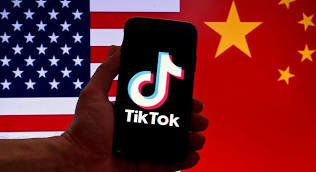
In recent weeks, the buzz around the potential U.S. government ban on TikTok has reached a fever pitch. With nearly 170 million American users engaged on the platform, the prospect of losing such a prolific source of entertainment and connection has sparked significant public debate. However, the issues at stake extend far beyond TikTok’s vast user base, touching on critical concerns regarding national security, data privacy, and the influence of foreign powers in American digital spaces.
The Heart of the Matter:
At first glance, TikTok is a vibrant social media platform where creativity and content reign supreme. Yet, beneath the surface, the implications of its operations are vast and complex. Owned by ByteDance, a company based in China, TikTok finds itself at the intersection of commerce and government oversight, where the lines between business interests and state influence are potentially blurred.
Social media platforms wield the power to shape cultural and political discourse. The algorithms that dictate what we see in our feeds are not just lines of code; they are the gatekeepers of our worldview. Companies like Meta (formerly Facebook) and Twitter have faced their share of scrutiny over how their algorithms influence public discourse, promoting certain types of content over others based on user engagement and other metrics.
Why Ownership Matters:
The concern with TikTok lies not just in its algorithmic operations but in who controls these operations. Ownership by a Chinese company introduces the possibility of foreign influence that can be leveraged to manipulate or censor content, potentially swaying public opinion on key issues from politics to policy. This risk is not unfounded, as numerous legislative efforts and investigations into TikTok have highlighted potential risks to national security through data access and manipulation.
Looking Beyond the Ban:
The potential TikTok ban raises broader questions about internet governance and digital sovereignty. How do we balance the need for open, global communication platforms with the imperative to protect national security and personal privacy? What roles should government regulation and corporate responsibility play in protecting users while supporting innovation and free expression?
As we contemplate the future of TikTok in the U.S., it is crucial to engage in a nuanced discussion that considers all facets of the issue. From individual user rights to national security concerns, the decisions we make today will set precedents for how we manage and mediate the digital landscape of tomorrow. Let us move forward with a balanced approach, ensuring that our digital ecosystems thrive as spaces of both innovation and integrity.
Posted by Tim Bray on
Leave A Comment